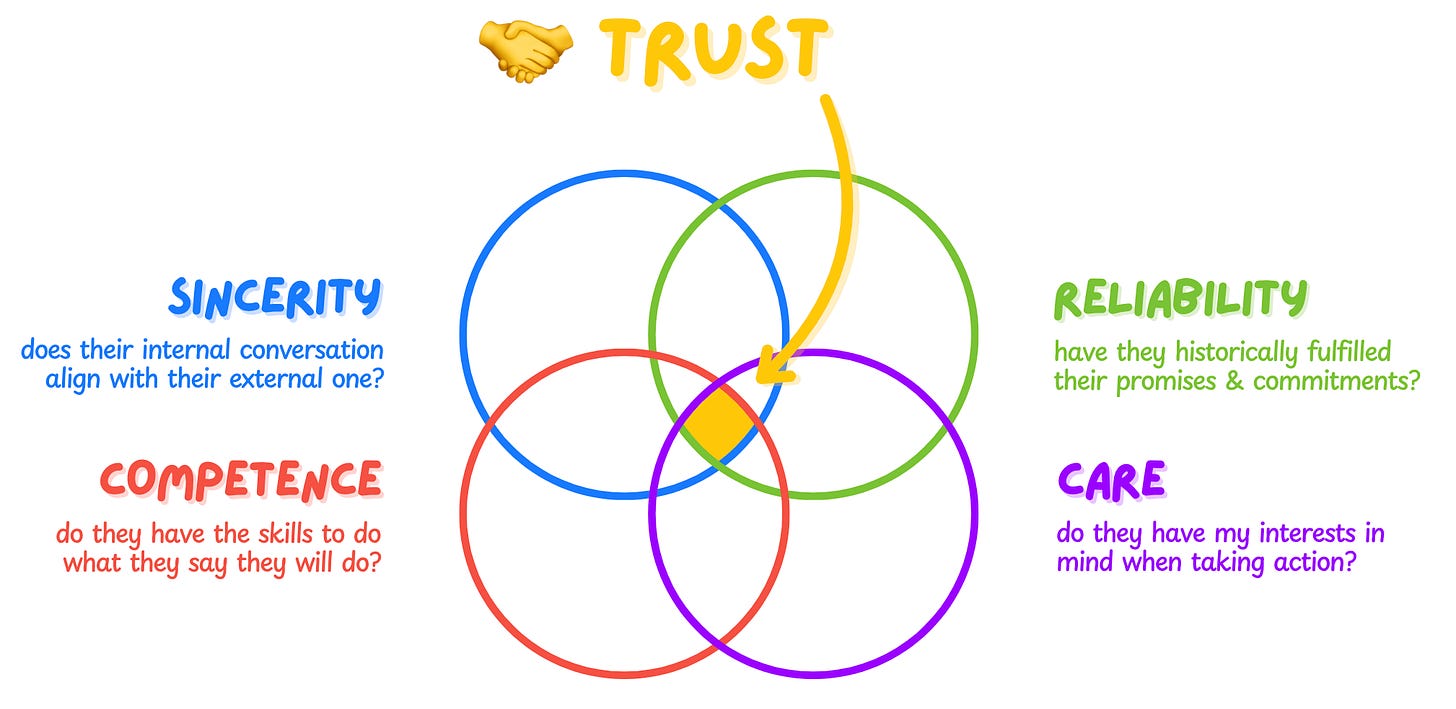Managing up in 2025 ⬆️
How to create an awesome relationship with your manager.
There is a famous saying that goes: people don’t leave companies, they leave their managers. Little autonomy, dubious trust, less than exciting tasks — we have all been there.
The opposite is also true: great careers are enabled by great managers, or more precisely, by great relationships with your managers.
The way you intentionally take care of these relationships is called managing up.
I am not a big fan of this topic, or at least of the way it gets treated online — most advice you can find feels overly tactical, if not manipulative. Instead, I feel this is a very foundational topic, and as such it deserves to be discussed by working from first principles.
As a challenge, it is also universal, regardless of your role or experience level. Whether you are a senior engineer, a CTO, or an intern, you will face similar situations in dealing with your higher-ups, which makes this topic even more important.
So here is the agenda for today:
🤝 Building trust — the four domains of trust and how to develop them.
🗣️ Speaking their language — adapting communication to different roles.
📊 Creating effective updates — from daily habits to weekly reports.
📚 Tools & resources — recommended books and frameworks from the community
Let’s dive in!
🤝 Building Trust
Managing up starts—and ends—with trust. What does trust really mean in a professional context?
In The Thin Book of Trust, Charles Feltman breaks it down into four domains:
🎭 Sincerity — you are honest and transparent, even when it’s uncomfortable. This includes admitting mistakes early, being upfront with challenges, and sharing both good and bad news, without sugar-coating the latter.
⏰ Reliability — this is about consistency and following through. You do what you say you’ll do, you set realistic expectations, and communicate proactively through regular update habits. More on this later in the updates section.
❤️ Care — you have their best interests in mind. This means understanding their goals and challenges, being proactive in helping them succeed, and showing empathy when things get tough.
🎓 Competence — finally, you deliver results. This goes beyond technical skills: it’s about delivering business value, learning and growing from feedback, and understanding the big picture.
I like this framework because it is extremely simple and it gives you concrete areas to work on. You can ask yourself: how am I doing in each of these? How can I do better?
Still, trust alone is not enough 👇
🗣️ Speaking their language
The domains of trust mentioned above are personal qualities. While they are foundational for a healthy relationship, they may also not be enough for a productive one.
When you look at issues that arise between engineers and managers, like conflicts on estimates, tech debt, or planning, these often happen to people who are, in fact, reliable, competent, caring, and sincere.
So you may be all of the above, but ultimately fail to understand each other. This happens easily, as different stakeholders have (legitimately) different goals, care about different things, and tend to speak different languages.
When this is not addressed intentionally, parties make all kinds of assumptions about each other, which ultimately leads to misunderstanding and conflict.
The key aspect of managing up is to learn to speak the language of your counterpart. If you can speak their language you can understand their goals and fears, and you can communicate at the level they are. You’ll be in a better position to be an effective report.
— Umberto Nicoletti, Director at Proemion
To bridge this gap, I find it useful to think in three steps: 1) map context, 2) translate impact, and 3) create agreements.
Let’s explore them:
1) Map their context 🗺️
Different roles see the world—and the organization—through different lenses.


